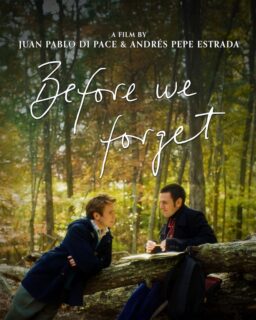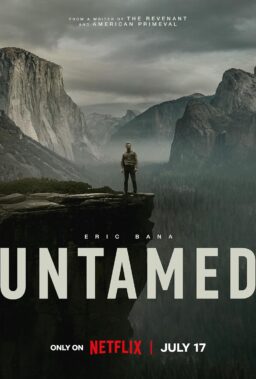Q. You have stated that “Braveheart” is the most violent film to ever win the Oscar as best picture. That ignores cinema history: See “Silence of the Lambs,” “Unforgiven,” “Godfather 1 and 2,” and “Platoon.” Mel Gibson reacted with stunned aplomb to your question on TV, and rightly so. (James Buchanan, Antioch, Calif.)
A. In my opinion, “Braveheart” is at least as violent as the films you mention. Mel Gibson might agree. When the movie was released, he told me: “I wanted the audience to feel like they were in the middle of it and to experience the full hell… I wanted to make it shocking, hard and brutal, and juxtapose that against what I think is, really, a romantic picture. When we first cut the picture, it was worse. Not for me but for some guy who just came in to a test screening from eating an ice cream cone and he was, like, he couldn’t believe it, because there were brains flying everywhere. It was too much. The object is to keep the audience in the theater, in the seats, so we had to kind of bring it down a level.”
Q. Re the controversy over the fact that “Fargo” isn’t based on a true story, although it claims to be: I remember feeling unfairly manipulated when I learned “The Texas Chainsaw Massacre”–which opens with a “this is a true story” title crawl read by John LaRoquette of “Night Court” fame–wasn’t based on a true story at all, but cobbled together from bits and pieces (heh, heh) of the infamous Ed Gein story, which also inspired “Psycho.” Then I thought, hey– isn’t it nice to know there WASN’T a “chainsaw massacre?” I feel the same way about the events in “Fargo.” (Mark Verheiden, Pasadena, Calif.)
A. For that matter “Henry, A Portrait of a Serial Killer” was based on a true story–sort of–and then it later turned out that Henry Lee Lucas, the killer who inspired it, had wildly exaggerated in his confessions to the police. And “The Thin Blue Line” was a documentary that created fictional scenes to reenact the events. And “From the Journals of Jean Seberg” is not based on the journals of Jean Seberg. “Truth,” as Mark Twain said, ” is the most valuable thing we have. Let us economize on it.”
Q. I was interested in the writer who found your negative reviews more interesting than your positive ones. I, for one, skip your reviews entirely when they fall below two and one-half stars. Why would I waste my time reading about a mediocre film any more than I would listen to bad music or read a dull book? Although I appreciate your humor at times, I’m really basically looking for a guide to good films. (Al Carli, Chicago)
A. Hey, if I have to waste my time seeing them and writing about them, isn’t it the least you can do to read about them? Besides, in my reviews of “North,” “Black Sheep,” “If Lucy Fell” and “Little Indian, Big City,” the writing, if I may say so, redeemed the subject matter.
Q. I’ll tell you how David Copperfield made the Statue of Liberty disappear if you tell me how they went from a seamless helicopter track-in to a dolly-in into the building for the opening shot of “The Birdcage.” (Greg Alexander, Coos Bay, Oregon)
A. Gladly. The shot is not seamless. It appears that the camera zooms over the ocean, the beach and the boulevard, and right inside Robin William’s nightclub. But it doesn’t. Look carefully for the almost-invisible quick dissolve hiding the cut between the helicopter shot and the dolly shot that takes you inside the club. (When I told you this via e-mail, you made good on your promise about Copperfield. So the base we see without the statue on it is a model, eh? And the audience was on a turntable?)
Q. Nothing ticked me off so much this year as the “banning” of independent publicists from the Oscars. It is the biggest global media night of the year. I wouldn’t want my client placed in the hands of some 22 year old “studio publicist” who’s never even met my client, and wouldn’t know a tabloid from a TV crew. (Elaine Johnson, Burbank, CA.)
A. Warner Bros. publicity chief Rob Friedman tells me the reason for the ban was that the indee publicists were following their clients all the way through the process, instead of staying in position and moving all the stars along in an orderly fashion. The publicists are there to service all the stars, not just their clients.
Q. I noticed a classified ad for persons to review movies for pay. I wrote for more information. They said that if I was selected as a local reviewer, I’d get $11 per completed movie review, if done according to their directions. They claimed they would sell the information to movie studios. The catch is that they wanted some cash up front: $28 for a deposit on an instruction kit, which is refundable if one is not selected as a reviewer, plus $4 for shipping (which isn’t refundable). Having $32 in my pocket, and being a movie buff, I decided to take a chance. I’m waiting for their reply, which is promised in 2-3 weeks. This outfit is named Audience Response. Have you ever heard of them? Do you think I fell for a scam? (Mike Saeger, Minneapolis)
A. You fell for a scam. And, yes, I have heard of Audience Response before. I’m surprised they’re still in business. The Answer Man exposed them more than a year ago, after studio spokesman told me they had “absolutely no need” for amateur reviews written weeks after a movie has opened.
Q. Now that the grosses are in, it seems that “Executive Decision” is never going to be number one at the box office, despite good reviews, the best Steven Seagal scene ever put on film, and good word of mouth. Stranger still is the film which has managed to stay at number one for four weeks in a row: “The Birdcage,” set in a transvestite night club. Would “Executive Decision” have been a bigger hit if two of its stars, B. D. Wong and John Leguizamo, appeared in drag, as they did, respectively, in the play “Madame Butterfly” and the movie “To Wong Foo?” How long will it be before someone in Hollywood combines the bus films “Priscilla, Queen Of The Desert” and “Speed“? (William C. Martell, Studio City, Ca)
A. Did you miss the skirts in “Braveheart?”











